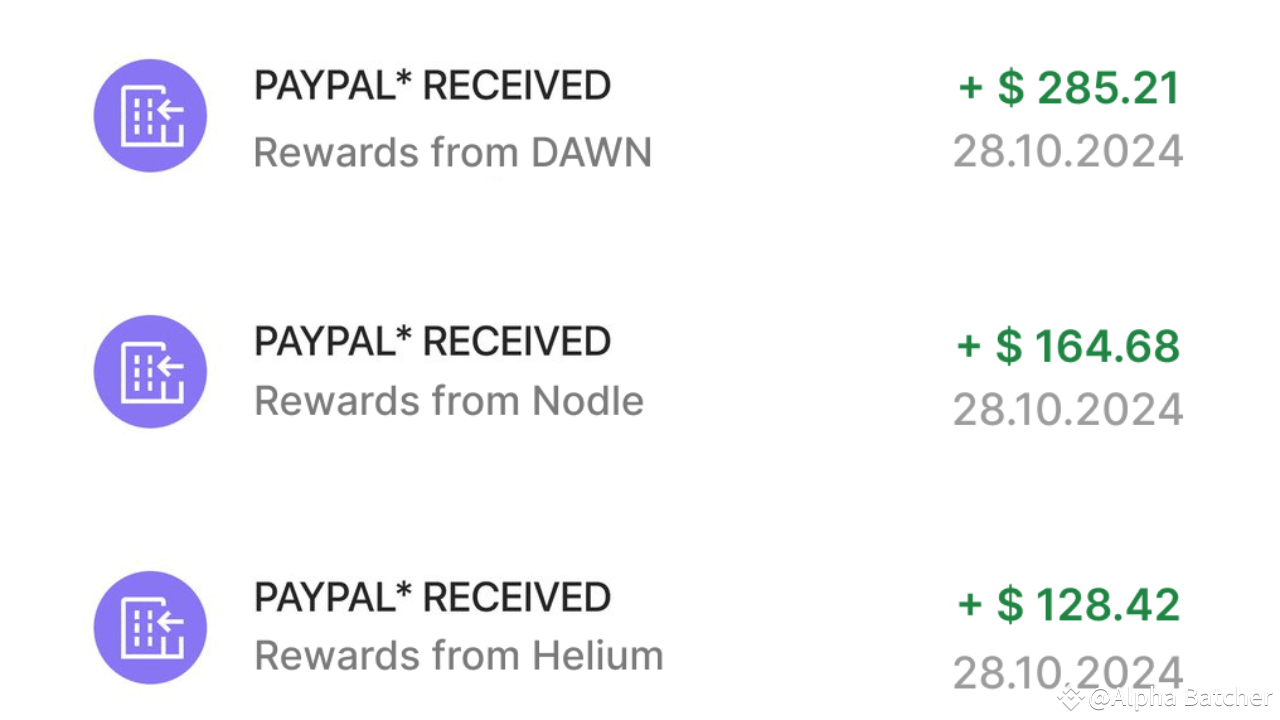Latest Helium News

6 months ago
Understanding Helium Mining: A New Era in Wireless Connectivity
Helium mining is a pioneering mechanism that underpins the Helium network, designed to provide global wireless connectivity for Internet-of-Things (IoT) devices. By running a hotspot, miners contribute to a decentralized infrastructure known as "The People’s Network," which facilitates low-powered, long-range wireless communication. This innovative use of blockchain technology rewards participants with Helium (HNT) tokens, effectively reducing reliance on traditional telecom providers and lowering IoT connectivity costs. The Helium network, which began development in 2013 and rebranded to Nova Labs in 2022, showcases the versatility of blockchain technology, expanding its applications beyond financial transactions into real-world infrastructure.
The mining process utilizes a proof-of-coverage (PoC) consensus mechanism, which ensures that hotspots are providing legitimate wireless coverage while rewarding them with HNT tokens. Miners operate specialized hardware that functions as both a wireless gateway and a blockchain node, validating transactions and extending network coverage. This decentralized approach contrasts sharply with traditional cellular networks, which rely on large, intrusive cell towers. Helium hotspots, powered by the Low Power Wide Area Networking Protocol (LoRaWAN), enable a wide range of applications, from smart agriculture to asset tracking, highlighting the potential of decentralized physical infrastructure networks (DePINs).
The profitability of Helium mining can vary significantly based on location, competition, and the number of connected IoT devices. While urban areas may face saturation, rural locations often present profitable opportunities due to lower competition. The transition to 5G technology introduces new earning potentials but requires specialized equipment. As demand for IoT connectivity grows, so too does the potential for increased miner rewards. Despite the inherent volatility of cryptocurrency markets, the steady growth in network usage and market capitalization suggests a promising outlook for Helium mining profitability in the coming years.

6 months ago
Helium's HNT Token Shows Strong Bullish Momentum with Potential for New Highs
As the cryptocurrency market shows signs of recovery, Helium's HNT token is experiencing a significant bullish resurgence. The price has made a swift V-shaped reversal, recently crossing above the $6.50 mark. This upward movement has resulted in a weekly surge of approximately 20%, positioning Helium for a potential breakout rally that could lead to a new 52-week high. Market analysts are now questioning whether this uptrend will push HNT above the psychological $10 threshold, which would mark a significant milestone for the token.
In analyzing HNT's price action, the daily chart reveals a bullish comeback from the 50% Fibonacci level, coinciding with the 200-day Simple Moving Average (SMA). This reversal is characterized by a bounce from the $5.52 support level, which has allowed the price to exceed the 61.80% Fibonacci level at $6.365. Currently, HNT is trading at $6.66, reflecting an intraday increase of 7.36%. The formation of four out of five bullish candles indicates a strong recovery, although the price has yet to break the lower-high formation trend. A successful jump above the $7.78 mark, or the 78.60% Fibonacci level, could signal a significant shift in the price trend, enhancing the likelihood of reaching a new 52-week high.
Looking ahead, the technical indicators suggest a bullish outlook for Helium. The consolidation between the 50-day and 200-day SMA lines indicates that a breakout above the upper resistance could amplify the trend momentum. Additionally, the MACD is nearing a bullish crossover due to increased buying pressure. If the bullish trend persists, price targets based on Fibonacci retracement levels are set at $10.05, with further potential highs of $13.91 and $21. Conversely, critical support levels are identified at $6.36 and the psychological $6 mark, which will be essential for maintaining upward momentum in the coming months.

6 months ago
Helium and Xnet Shift Focus to Wi-Fi in Decentralized Wireless Networks
In a significant shift within the decentralized wireless network market, Helium and Xnet are now prioritizing Wi-Fi connections over the previously favored 3.5GHz CBRS spectrum band. This change is largely driven by the challenges associated with CBRS, including interference and poor user experience. Mario Di Dio, general manager of Nova Labs' Helium network, emphasized that Wi-Fi, particularly with Passpoint technology, offers a more mature and easier deployment option. This technology, which streamlines Wi-Fi connectivity, has gained widespread support across various devices, making it a more attractive alternative for decentralized network operators.
Both Helium and Xnet have transitioned from encouraging the deployment of costly CBRS radios to promoting the installation of Wi-Fi hotspots, which are significantly less expensive. While the coverage area of Wi-Fi hotspots is generally smaller compared to CBRS sites, this strategy has led to major offloading agreements with prominent wireless network operators. Helium has secured deals with two of the three major 5G operators in the U.S., while Xnet claims to have an agreement with AT&T. These partnerships allow both companies to offload network traffic onto their respective sites, rewarding hotspot operators with cryptocurrency tokens based on the amount of data offloaded.
The evolution from decentralized wireless (DeWi) to decentralized physical infrastructure networks (DePIN) reflects a broader trend where companies are leveraging decentralized models across various sectors, including energy and mapping. Helium, a pioneer in this space, has expanded its offerings to include a mobile virtual network operator (MVNO) service, attracting around 100,000 customers. As the debate over the utilization of the CBRS spectrum continues, the shift towards Wi-Fi may reshape the landscape of decentralized networks, highlighting the growing importance of flexible and accessible wireless solutions in the telecommunications industry.

6 months ago
Exploring Passive Income Opportunities in DePIN Projects
Passive income is increasingly becoming a focal point for individuals looking to enhance their financial stability. One promising avenue is Decentralized Physical Infrastructure Networks (DePIN), which allows users to earn rewards through decentralized systems without significant initial investment. The primary objective of DePIN is to create a decentralized infrastructure that utilizes blockchain technology to support hardware services. This innovative approach not only facilitates income generation but also incentivizes participation through token rewards, making it an attractive option for those with limited capital.
Among the various DePIN projects, @helium_mobile stands out as a rapidly expanding wireless network that rewards users for sharing their geolocation data with $MOBILE tokens. Users can potentially earn around $700 monthly by purchasing and installing a Helium HotSpot device. Similarly, @dawninternet offers a decentralized wireless network where users can earn approximately $150 per month by downloading an extension and creating an account. Another noteworthy project, @NodleNetwork, utilizes smartphones to provide services, allowing users to earn about $200 monthly by simply downloading an app and enabling Bluetooth.
Additionally, @Hivemapper presents an opportunity to earn around $800 monthly through a decentralized mapping network by installing a camera in your vehicle. Other projects like @HivelloOfficial and @Gradient_HQ also offer substantial earning potential, with users able to earn $200 monthly by providing computer resources or participating in decentralized cloud computing. Overall, DePIN represents a promising sector for passive income, combining safety and minimal time investment, making it an appealing choice for aspiring earners in the blockchain space.

7 months ago
The Rise of Decentralized Physical Infrastructure Networks (DePIN)
The concept of Decentralized Physical Infrastructure Networks (DePIN) has gained significant attention in 2024, although its roots trace back further. The term DePIN was popularized in late 2022 by Messari, which categorized various projects under this umbrella. Among the pioneering DePINs, Helium stands out with its extensive network of over 996,000 routers and a market cap exceeding $1 billion for its HNT token. Helium exemplifies the practical benefits of decentralization, providing localized 5G coverage that traditional telecom infrastructures often overlook. This shift towards decentralized solutions reflects a growing recognition of the value they bring beyond mere security and resistance to censorship.
As the DePIN landscape evolves, experts like Álvaro Gracia and Sean Carey are exploring new categorizations for these networks. They distinguish between 'bespoke' networks, which require specific hardware like Helium, and 'commodity' networks that can operate on everyday devices, such as smartphones. Projects like NATIX and Wingbits illustrate this trend, enabling users to earn tokens by contributing data through their devices. These innovations suggest that the potential for disruption in the DePIN space is vast, particularly as more individuals can participate without the need for specialized infrastructure.
Looking ahead, DePINs are poised to transform various sectors, including electric vehicle (EV) charging infrastructure. With EV adoption outpacing the establishment of public charging stations, decentralized solutions are emerging to connect EV owners with private chargers. Initiatives like PowerPod leverage token incentives to encourage participation, while Minima explores a model where tokens manage access rather than serve as payment. This approach could redefine how users interact with charging infrastructure, blending decentralized technology with traditional fiat payment systems, thus broadening the appeal and usability of DePINs in everyday life.

7 months ago
Studio369 Moves MetalCore to Solana Blockchain for Enhanced Gaming Experience
Game development company Studio369 has announced the migration of its mech shooter title MetalCore to the Solana blockchain, aiming to enhance the gaming experience through faster on-chain transactions. As of October 24, the Solana blockchain is processing an impressive average of about 3,000 transactions per second, a key performance metric that underscores its capabilities. MetalCore will leverage Solana Labs' GameShift platform, which integrates a storefront and payment systems for in-game purchases. This free-to-play open-world game features both player-versus-player (PvP) and player-versus-environment (PvE) battles, allowing players to acquire assets from defeated opponents and convert them into Web3 assets for trading.
The migration to Solana comes as the network has been attracting various protocols looking to improve scalability and reduce costs. Studio369's decision reflects a broader trend, as other projects like MetaBlox's Roam network and the decentralized wireless communications protocol Helium have also transitioned to Solana for its faster transaction speeds and scalability. With the gaming sector increasingly gravitating towards blockchain technology, Solana's infrastructure is positioned to support these developments effectively.
Despite its advantages, Solana has faced challenges, including significant periods of downtime that have raised concerns about its reliability. The latest outage, which lasted about five hours, occurred on February 6, 2024. In response to these issues, the Solana Foundation is working on the Firedancer upgrade, with a full version expected in 2025 and interim updates to manage the growing network activity. As Solana continues to evolve, it remains a focal point for gaming and decentralized infrastructure projects seeking robust blockchain solutions.

7 months ago
Solana's Innovations Overlooked in EVM-Biased Report
In a recent analysis of a16z's report on the "State of the Crypto Industry," Lily Liu, Chair of the Solana Foundation, highlights a notable EVM bias that overlooks Solana's impressive achievements in transaction fees, NFTs, and the DeFi market. Despite Solana leading in NFT addresses and transaction volume over the past year, the report fails to acknowledge significant innovations in decentralized physical infrastructure networks (DePIN), such as Helium and Hivemapper, which thrive within the Solana ecosystem. Liu argues that the report's binary framework, which positions EVM and non-EVM ecosystems as oppositional, misrepresents the true landscape of blockchain development and user engagement.
Liu emphasizes the importance of transaction fees as a more meaningful metric for assessing ecosystem activity and health, rather than relying solely on active addresses or Total Value Locked (TVL). Since introducing a fee market, Solana's transaction fee market share has surged from below 1.5% to consistently above 10%, peaking at 25% in July 2024. This shift indicates a growing economic value within the Solana ecosystem, narrowing the gap with Ethereum when considering Real Economic Value (REV). Furthermore, Liu critiques the report's gaming sector analysis, which fails to adequately include non-EVM networks like Solana, leading to incomplete comparisons that do not reflect the full blockchain gaming ecosystem.
Additionally, Liu points out that the report's focus on TVL for DeFi comparisons is insufficient, as it overlooks critical metrics such as transaction volume. While Solana's TVL is only 10% of Ethereum's, its monthly DEX transaction volume often exceeds that of Ethereum, highlighting its capital efficiency. Liu also notes that Solana's low transaction costs have driven significant consumer behavior changes, exemplified by the success of platforms like Drip Haus. The absence of DePIN innovations within the report raises questions about its comprehensiveness, as groundbreaking projects like Helium and Hivemapper are primarily developing within the Solana ecosystem, showcasing the real-world applications of decentralized networks.

7 months ago
Regulators Acknowledge Benefits of Decentralized Physical Infrastructure Networks (DePIN)
Regulators Acknowledge Benefits of Decentralized Physical Infrastructure Networks (DePIN)
Regulators have recognized the unique advantages brought by decentralized physical infrastructure networks (DePIN), as stated by Greg Osuri, the founder of Akash, a DePIN protocol. Osuri aims to persuade regulators that DePIN should be supervised differently from other crypto sectors. A recent meeting with a key staffer from the U.S. House committee overseeing commerce and trade was described as 'productive' by Osuri. Akash and competitor InFlux Technologies have joined forces to establish a DePIN and Web3 advocacy group to create a regulatory framework for the sector.
Advocates of DePIN emphasize the real-world value these projects offer by granting users control over physical infrastructure networks using blockchain technology. Alvaro Garcia from Borderless Capital highlighted that DePIN projects stand out from traditional crypto ventures as their value is derived from outside the crypto sector. Osuri echoed this sentiment, mentioning that regulators are taking notice of DePIN's disruptive potential in mainstream markets. VCs like Borderless Capital have shown interest in DePIN, with a recent $100 million fund dedicated to the sector, investing in projects like Helium and GEODNET.
Osuri argues for a distinct regulatory approach for DePIN compared to sectors like DeFi. Akash and InFlux Technologies have formed an advocacy group to educate regulators on the unique value proposition of DePIN. Osuri stressed the importance of differentiating DePIN from other crypto sectors in regulatory discussions to ensure lawmakers understand its distinct characteristics and benefits. Despite utilizing crypto features, Osuri believes that emphasizing the advantages of DePIN is more crucial than focusing on the 'crypto' aspect.

7 months ago
Helium (HNT) Price Shows Signs of Recovery Amid Market Volatility
The Helium (HNT) token has shown signs of a bullish recovery over the past two days, aided by its 200-day Exponential Moving Average (EMA) on the daily chart. Currently, the token is trading 46.25% below its all-time high (ATH), suggesting a potential for a breakout rally. However, market analysts warn of a possible bull trap around the $8 mark, where a strong sell point exists. This volatility raises questions about the wisdom of investing in Helium amidst fluctuating market sentiments.
In recent trading, Helium's price has experienced increased volatility, with a 10.39% correction over the past week and a 14.47% decline in the last 30 days. Despite these setbacks, the token has recorded a 4% increase in the last 24 hours, with a trading volume of $15.46 million, albeit down by 45.41%. The bearish trend indicated by the 50-day EMA contrasts with the support provided by the 200-day EMA, reflecting uncertainty in the market. The Relative Strength Index (RSI) indicates a neutral trend, suggesting a balance between buying and selling pressures.
Looking ahead, if bullish momentum continues, HNT could retest its resistance level of $6.525 this week. Sustaining above this level may pave the way for a rise toward the $8 resistance in the coming weeks. Conversely, a bearish turn in the crypto market could see Helium drop to its support level of $5.155, with further declines potentially reaching the lower support trendline of $3.80. Investors are keenly observing these developments to gauge the long-term prospects of this digital asset.

7 months ago
DePin: The Future of Blockchain in Real-World Applications
The emergence of Decentralized Physical Infrastructure Networks (DePin) is addressing a critical question in the cryptocurrency space: what practical applications does blockchain technology offer? DePin represents a shift towards utilizing blockchain for solving real-world issues, moving beyond speculative tokens. Projects under DePin, such as Hivemapper, Helium, and GEODNET, are leading the charge by leveraging blockchain to create innovative solutions that can be easily understood and utilized by the general public.
Hivemapper is revolutionizing mapping technology by allowing users to contribute to a live, high-definition map of the world. Users can purchase a 4K dashcam that maps roads as they drive, earning HONEY tokens in the process. In less than two years, Hivemapper has mapped over 330 million kilometers of roads, significantly outpacing traditional mapping services like Google Maps. Meanwhile, Helium has established a global IoT network by selling mini cell towers, allowing individuals to earn HNT tokens for providing internet coverage. With over one million hotspots deployed, Helium is also expanding into mobile services, demonstrating the scalability of its decentralized model.
Another noteworthy project, GEODNET, aims to enhance GPS accuracy by utilizing a network of satellite miners installed on rooftops. This innovative approach offers centimeter-level precision at a fraction of the cost of traditional GPS services. GEODNET's partnership with the US Department of Agriculture highlights its potential applications in sectors where precision is crucial, such as agriculture. Overall, DePin projects are not only showcasing the transformative power of blockchain technology but are also poised to lead the next wave of growth in the cryptocurrency market, making it an exciting sector to watch in the coming years.
Signup for latest DePIN news and updates